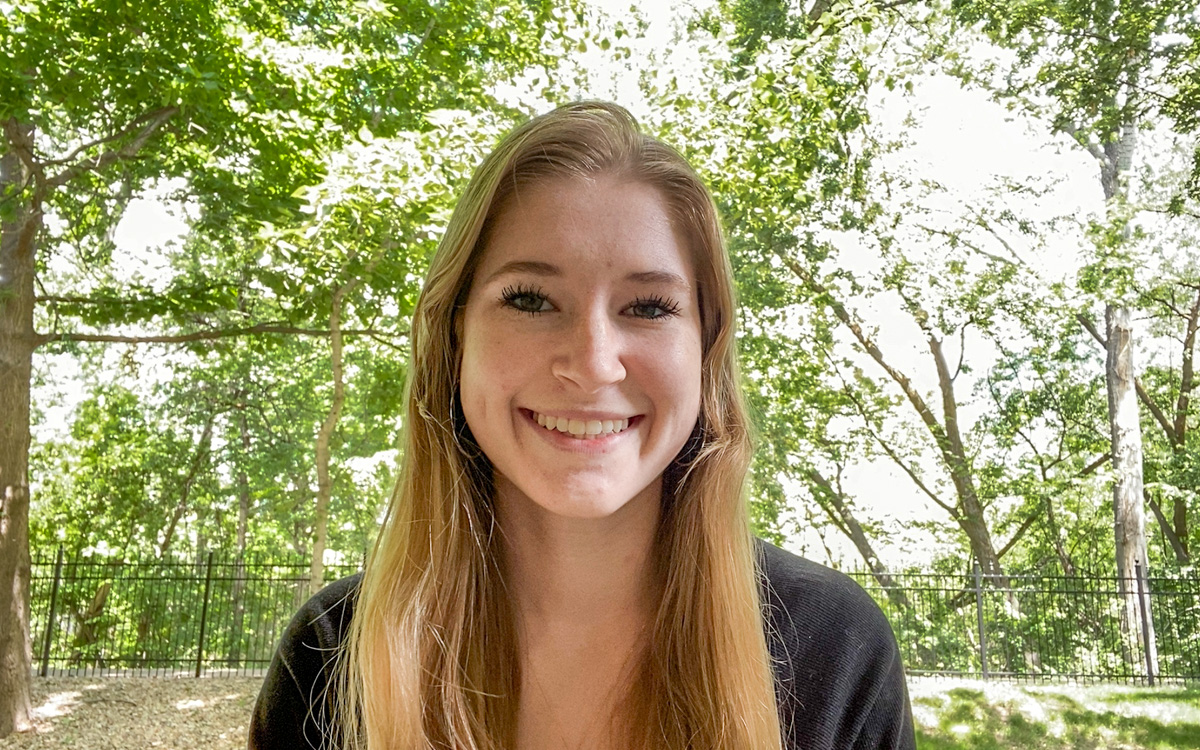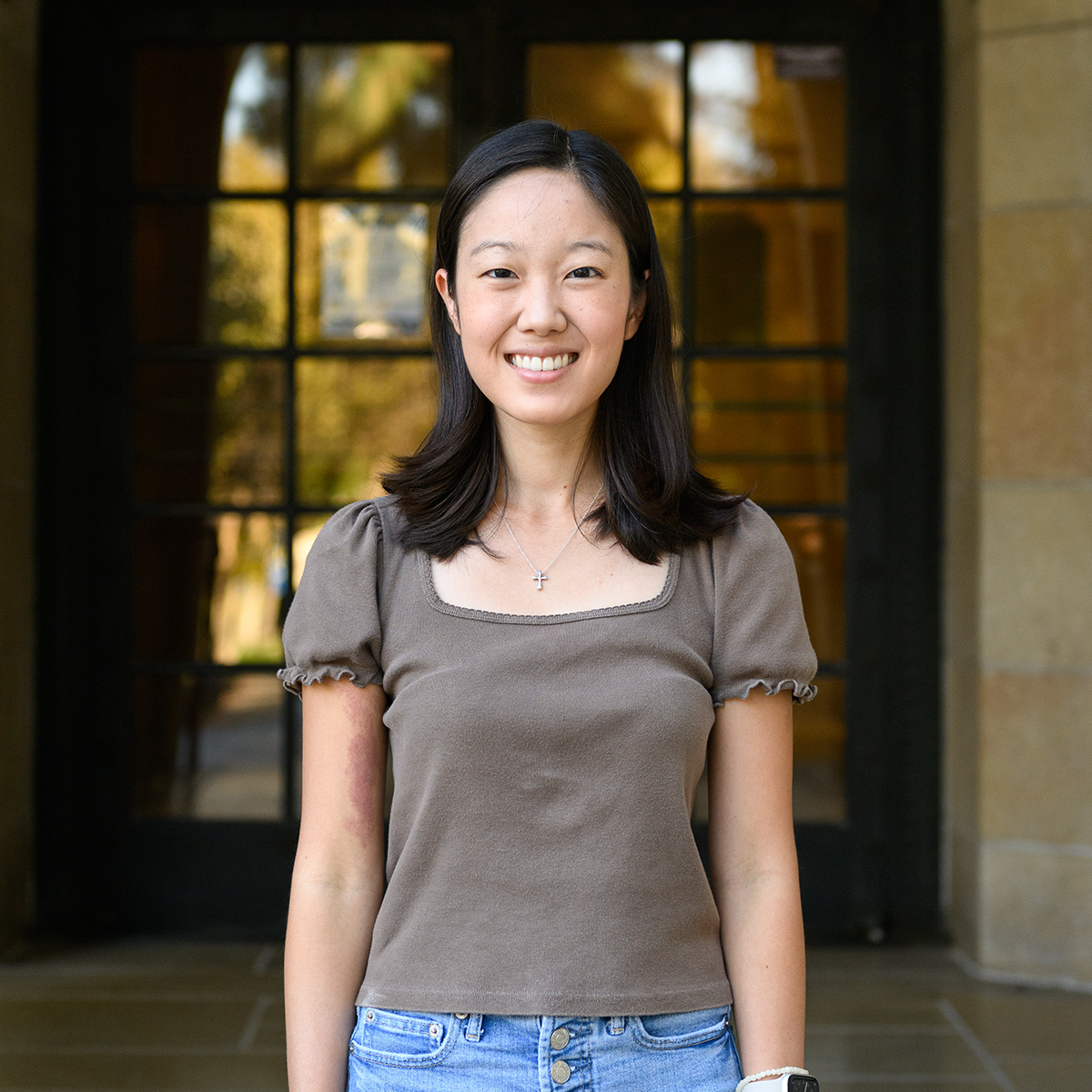Asian American studies class teaches community-led approach to fostering change

Kathryn Greenler, a second-year geography student and student in Asian American Studies 191A, said the class has helped her learn how to apply her skills in technology to support and uplift local communities such as Koreatown. (Sakshi Joglekar/Assistant Photo editor)

By Megan Tagami
June 6, 2021 10:21 p.m.
As a student pursuing a geographic information systems and technology minor, Kathryn Greenler is familiar with maps and data.
Yet Greenler only recently learned how to take a community-centered approach to her studies by creating technology that will amplify the voices of Koreatown.
“It’s very interesting to learn about how to use my skills and data and all these things that are normally very impersonal to take on a personal perspective and work with humans,” said Greenler, a second-year geography student. “That is a really big thing because I feel like everything is very disconnected these days.”
The spring course Asian American Studies 191A: “Web Development and GIS for Social Change: Critical Data for Transforming Civil Society,” does not just teach digital mapping and website development – it also challenges students to apply their skills to projects directly supporting communities.
According to the course syllabus, students work throughout the quarter to address the needs of local communities by gathering survey data and creating interactive, accessible maps and websites. Students’ projects covered issues from food insecurity to recent spikes in anti-Asian hate crimes.
Greenler worked with her classmates third-year political science student Lauren Valles and fourth-year Asian American studies and public affairs student Nina Long to support the Wilshire Center Koreatown Neighborhood Council’s ongoing project – Reimagine 6th St. The project would repurpose 6th Street in Koreatown as a public plaza to increase green spaces and decrease local traffic accidents.
In order to support the council’s vision, Greenler and her classmates created a survey to ask Koreatown residents about their experiences with pedestrian safety and the amenities they would like to see included in the Reimagine 6th St project.
Valles said her group adapted a survey the council released early this year and revised it to make the questions more receptive to community insight.
The survey now includes more open-ended questions and opportunities for respondents to share their opinions on the proposed project, Greenler said. The student group plans to put the responses onto an online map that reflects the areas of Koreatown in which residents have responded to the survey.
“We added a lot of open-ended questions in the service of making sure that residents didn’t feel like they were just affirming what we wanted them to say,” Long said. “We wanted them to feel that they genuinely have an opportunity to impact what the vision of this project is.”
Long said it is especially important to amplify community voices through their survey because underrepresented individuals often do not have a sense of ownership in local projects.
Long and her classmates worked with Adriane Hoff, the president of the council, to tailor the survey to local interests and concerns.
The group’s survey initially referenced Santa Monica’s 3rd Street Promenade as an example of what Reimagine 6th St could become. The group removed the reference after learning from Hoff that the Promenade had displaced local businesses, something the council hopes to avoid.
Greenler said receiving feedback from Hoff has been a key part of centering the Koreatown community’s perspective in her group’s project. Because her group is unable to visit Koreatown in person because of COVID-19 restrictions, Hoff will also play an important role in distributing the finalized survey throughout the neighborhood, Greenler added.
Samuel Karakas and Brian Zamora are also taking advantage of the technological skills they are learning in Asian American Studies 191A by creating a project that will highlight both the challenges and successes of Los Angeles tenants dealing with harassment.
As a renter himself, Karakas knows the importance of recognizing and upholding tenants’ rights. Karakas, a third-year geography student, said he faced harassment after a real estate company purchased his bungalow property. In an attempt to evacuate renters and revamp the building, the company took away parking spots and sent residents inflated maintenance bills, Karakas added.
In response, Karakas joined the Los Angeles Tenants Union to learn how others have handled similar situations of harassment.
“It was a huge relief to me to see that … other people are going through the same thing, and that some of them have been doing it for a long time successfully and they’ve gotten themselves into a much more comfortable position,” Karakas said.
The support and solidarity Karakas received in the Los Angeles Tenants Union helped inspire his current project, which surveys renters about if they have experienced tenant harassment and if they feel secure in their apartments. Karakas and Zamora plan to plot reported cases of tenant harassment on a map of Los Angeles and share the survey responses on their website.
Technology and knowledge about tenants’ rights are not always accessible to community members, said Zamora, a fourth-year individually studying critical social research methodology. He hopes his group’s website will make resources on combating harassment more readily available and foster greater support among Los Angeles tenants.
“Our most immediate implication is to … let these people know that they aren’t alone in their struggle,” Zamora said. “And, second of all, to be able to share what it’s also like with being a tenant and experiencing this harassment and the ways that we’re able to overcome that.”
Even after their course concludes, students hope their projects will continue to benefit the community.
Zamora said he hopes to leave the website and survey live, even when his academic responsibility to the project ends. He hopes continued testimonies from community members will help to create solutions for addressing and overcoming harassment.
Valles also believes her project has the potential to create tangible changes in community health in Koreatown. She said she has learned that professional titles are secondary to a genuine willingness to help others.
“Before this year, I used to think you had to be elected to a certain position or you had to have some sort of degree to create change,” Valles said. “But in reality, you just have to be a passionate person willing to do good.”


